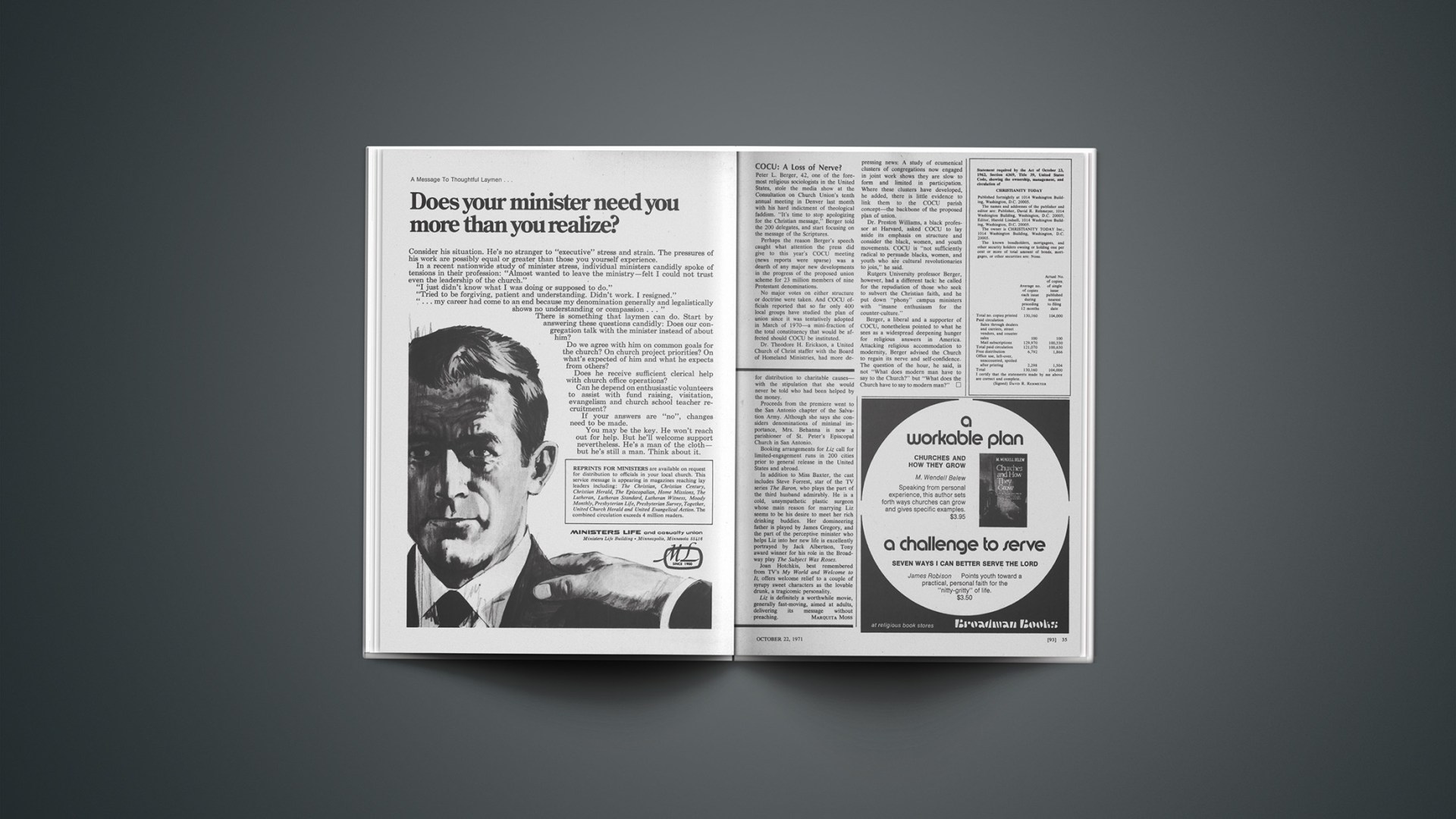Peter L. Berger, 42, one of the foremost religious sociologists in the United States, stole the media show at the Consultation on Church Union’s tenth annual meeting in Denver last month with his hard indictment of theological faddism. “It’s time to stop apologizing for the Christian message,” Berger told the 200 delegates, and start focusing on the message of the Scriptures.
Perhaps the reason Berger’s speech caught what attention the press did give to this year’s COCU meeting (news reports were sparse) was a dearth of any major new developments in the progress of the proposed union scheme for 23 million members of nine Protestant denominations.
No major votes on either structure or doctrine were taken. And COCU officials reported that so far only 400 local groups have studied the plan of union since it was tentatively adopted in March of 1970—a mini-fraction of the total constituency that would be affected should COCU be instituted.
Dr. Theodore H. Erickson, a United Church of Christ staffer with the Board of Homeland Ministries, had more depressing news: A study of ecumenical clusters of congregations now engaged in joint work shows they are slow to form and limited in participation. Where these clusters have developed, he added, there is little evidence to link them to the COCU parish concept—the backbone of the proposed plan of union.
Dr. Preston Williams, a black professor at Harvard, asked COCU to lay aside its emphasis on structure and consider the black, women, and youth movements. COCU is “not sufficiently radical to persuade blacks, women, and youth who are cultural revolutionaries to join,” he said.
Rutgers University professor Berger, however, had a different tack: he called for the repudiation of those who seek to subvert the Christian faith, and he put down “phony” campus ministers with “insane enthusiasm for the counter-culture.”
Berger, a liberal and a supporter of COCU, nonetheless pointed to what he sees as a widespread deepening hunger for religious answers in America. Attacking religious accommodation to modernity, Berger advised the Church to regain its nerve and self-confidence. The question of the hour, he said, is not “What does modern man have to say to the Church?” but “What does the Church have to say to modern man?”










